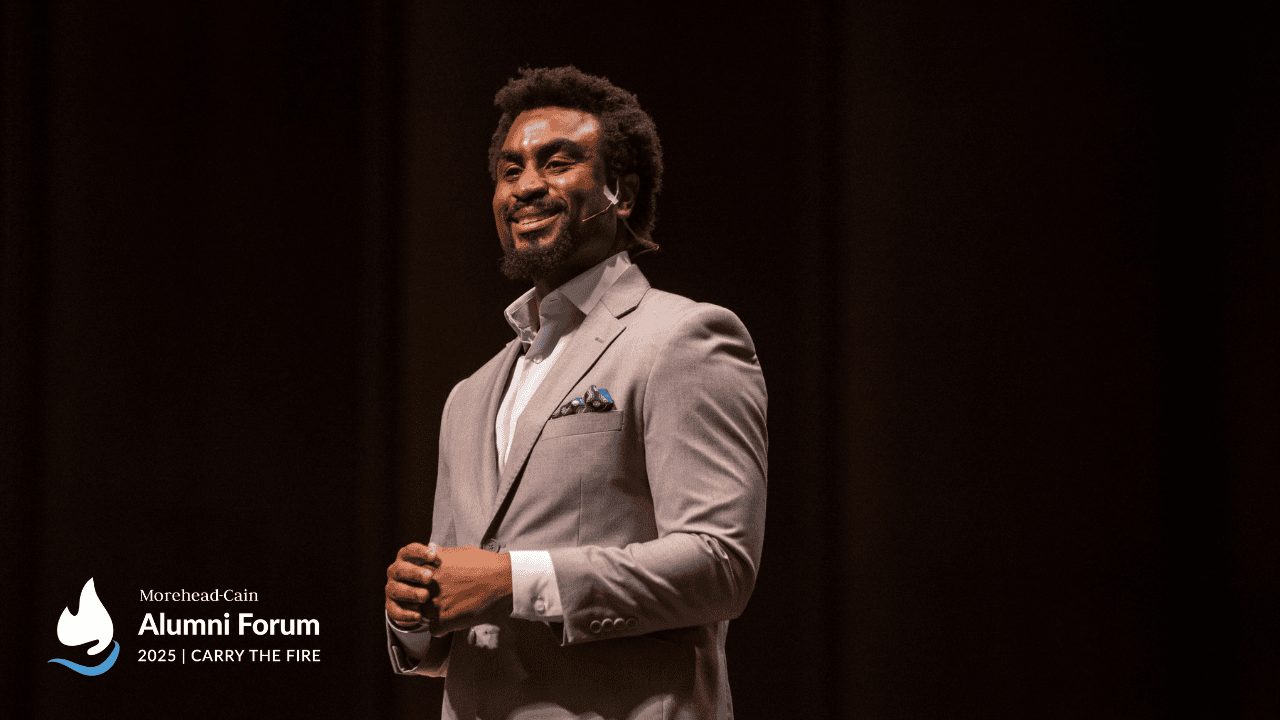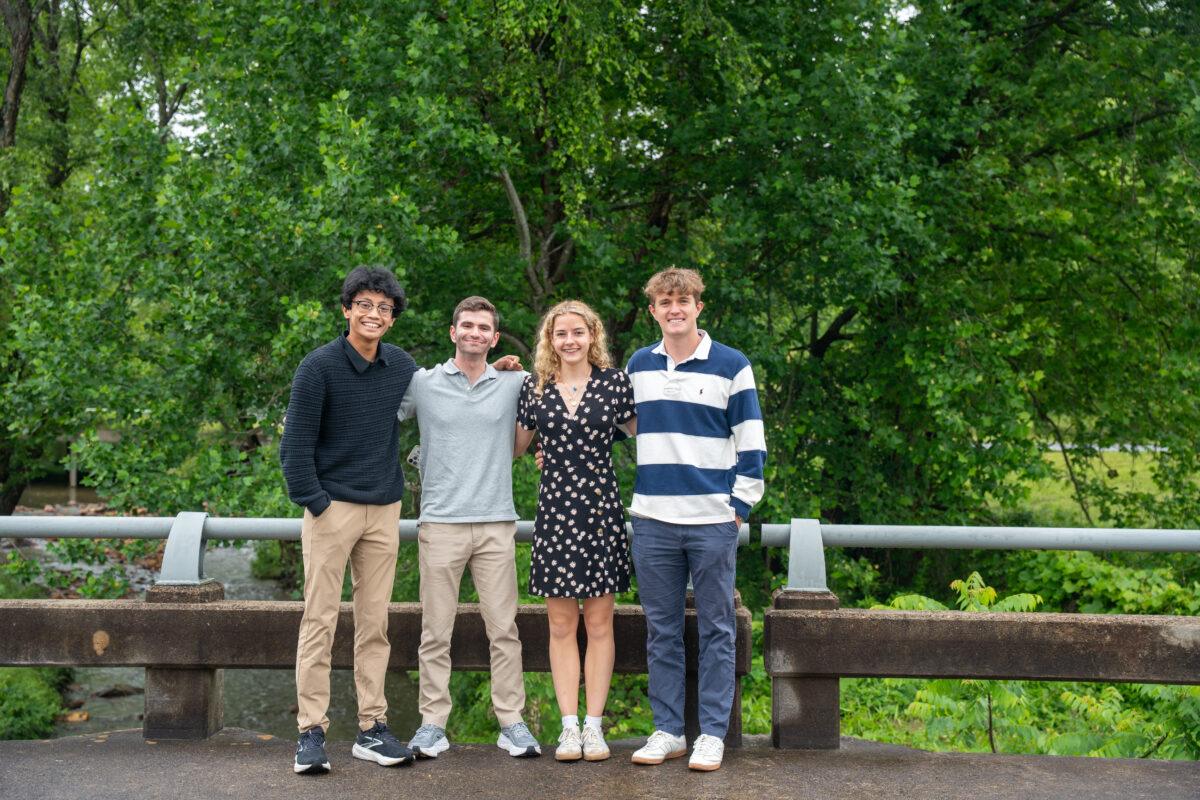
Morehead-Cain Scholars help forge a path for the Town of Black Mountain post-Hurricane Helene with emergency response and resiliency assessment.
When Hurricane Helene tore through Black Mountain, North Carolina, in September 2024, it left behind more than $27 million in damage. Homes lay in ruins, businesses sat shuttered, and critical infrastructure collapsed. Town leaders faced an overwhelming recovery mission with stretched resources.
Through the Civic Collaboration program, Morehead-Cain deployed a team of rising sophomores and juniors to help the Town of Black Mountain address Helene’s aftermath and build long-term resilience.
Over eight weeks, the scholars worked closely with Town Manager Josh Harrold and Assistant Town Manager Jessica Trotman to document the storm’s impact, analyzing breakdowns in emergency communications, and develop a detailed report with recommendations to strengthen future crisis response.
Trotman explained that the team’s work on resiliency planning was only possible by first understanding the town’s initial response.
“You cannot engage in resiliency planning unless you understand where you have been,” the town leader said.
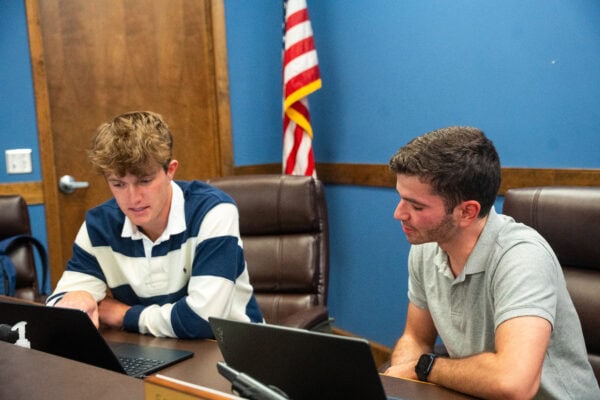
Gowar and Levy refine their project strategy in the Town of Black Mountain Town Hall, the scholars’ home base for the summer.
The Black Mountain Civic Collaboration team comprised Raife Levy ’27, Joss Gowar ’28, Sophie Luxton ’28, Ali O’Brien ’28, and Bryan Sukidi ’28.
For Levy, the summer offered a chance to contribute in a meaningful way to his adopted home state.
“Going to school here, I have the opportunity to be involved in something that can have very real impacts and give back to my community in a tangible way,” the rising junior shared.
Sukidi echoed the program’s spirit of service:
“I think the question that the Civic Collaboration summer asks is not ‘What can you get from your community, opportunity, or internship?’ but rather ‘What can you give?’ To be able to give back to a community in this practical way—that is not something solely to be put on a résumé—is very meaningful.”
The scholars’ work supported Black Mountain in building both short- and long-term resiliency: identifying gaps in disaster communication systems, archiving lessons learned from Helene through interviews and official records, and recommending equitable strategies such as multilingual outreach, designated safe zones, and formalized emergency protocols to strengthen future preparedness.
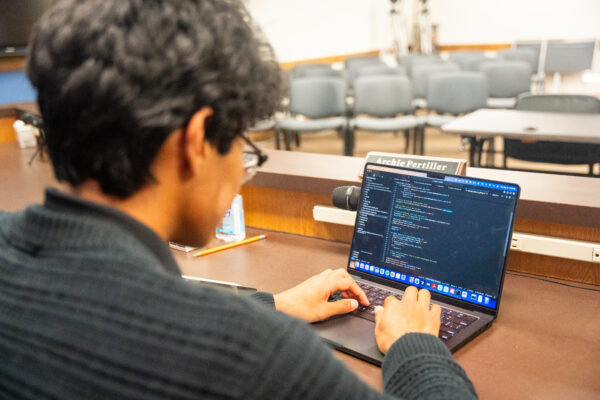
A computer science major, Sukidi used his coding expertise to create a model that helped the team analyze town documents.
The project offered not just immediate support to the town but the promise of ongoing civic engagement.
“I hope that the scholars can walk away from it with a better understanding of how town operations work—an up-close and personal understanding of the process and why barriers happen,” Trotman said. “Their perspective and appreciation for local government will be different, and they become your allies in the future. They are your future council members, planning board members, or community advocates.”
From documenting disaster response to planning for the future, the Civic Collaboration team’s summer in Black Mountain shows what’s possible when scholars and public institutions work hand in hand. Their efforts reflect Morehead-Cain’s mission to cultivate civic-minded leaders equipped to drive real-world change, starting at the local level.
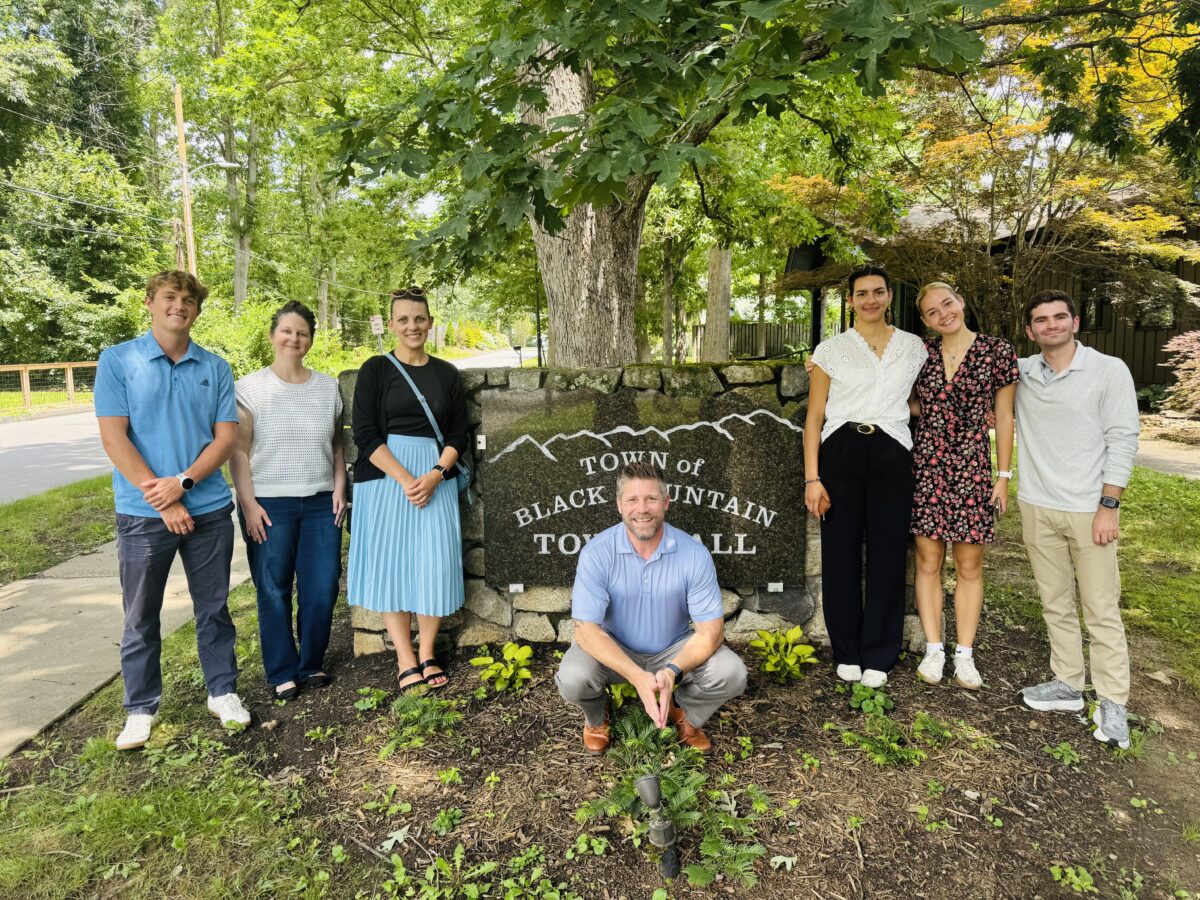
From left to right: Gowar, Trotman, Morehead-Cain Director of Community Advancement Meg Petersen Marshall, Harrold, O’Brien, Luxton, and Levy.

